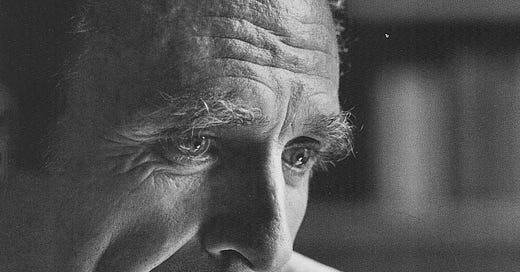Books for a Very Long Journey XV
Argentina, Japan, a depopulated Central Asia, Ingenues Abroad, and ever so much more...
§161 Adolfo Bioy Casares, The Invention of Morel: I have asserted in at least one previous installment in this series that, in the twentieth century, no country in the Americas produced a richer literature than that of Argentina—though a good number of its most distinguished writers during the period remain little known in the Anglophone world. That is not the case with Bioy (1940-1999), admittedly, but even he tends to be better known among us for his friendship and collaborations with Borges than for his own achievements (just as Bioy’s wife, the remarkable Silvina Ocampo, often seems to be better known for her associations with both men than for her own poetry and fiction). For those who do know Bioy, this novella form 1940 requires no special introduction; it is his most celebrated work; but I love it, so I have decided to include it in my great and growing list. As with more or less all modern Argentine literature of any consequence, its idiom is that of the fantastic (there are Argentine literary realists, I am reliably informed, but we need not dwell on that depressing fact). Its narrator describes himself as a fugitive—a Venezuelan writer who has fled a sentence of life-imprisonment and is hiding out on a now uninhabited island with an abandoned museum on the summit of its highest hill; he is also very ill, and has cause to think he is going mad. At first, he had sheltered in the museum, but one day an unexpected party of stylish tourists had landed at the dock and he had had to retreat to the glades in the lower elevations. Thereafter he has spied on the visitors as they dine and dance and banter, finding their presence here ever more incomprehensible; but he has also fallen in love (at a distance) with one of them, a woman who stands each evening on a cliff watching the sun set over the sea. Her name is Faustine. At least, that is what one of her companions—Morel—calls her. When, however, the narrator decides at last to reveal himself to the visitors, they give no indication of being able to see or hear him; then for a time they vanish entirely from the library, only to reappear again a little later; and then they start repeating conversations he has listened in on before and actions he has already watched; and one day he observes two suns and two moons in the sky. But I will give away no more of the story. It really is a brilliant tale, as well as an ingenious meditation on reality and appearance, life and death, and ultimately the nature of the soul.
Keep reading with a 7-day free trial
Subscribe to Leaves in the Wind to keep reading this post and get 7 days of free access to the full post archives.




